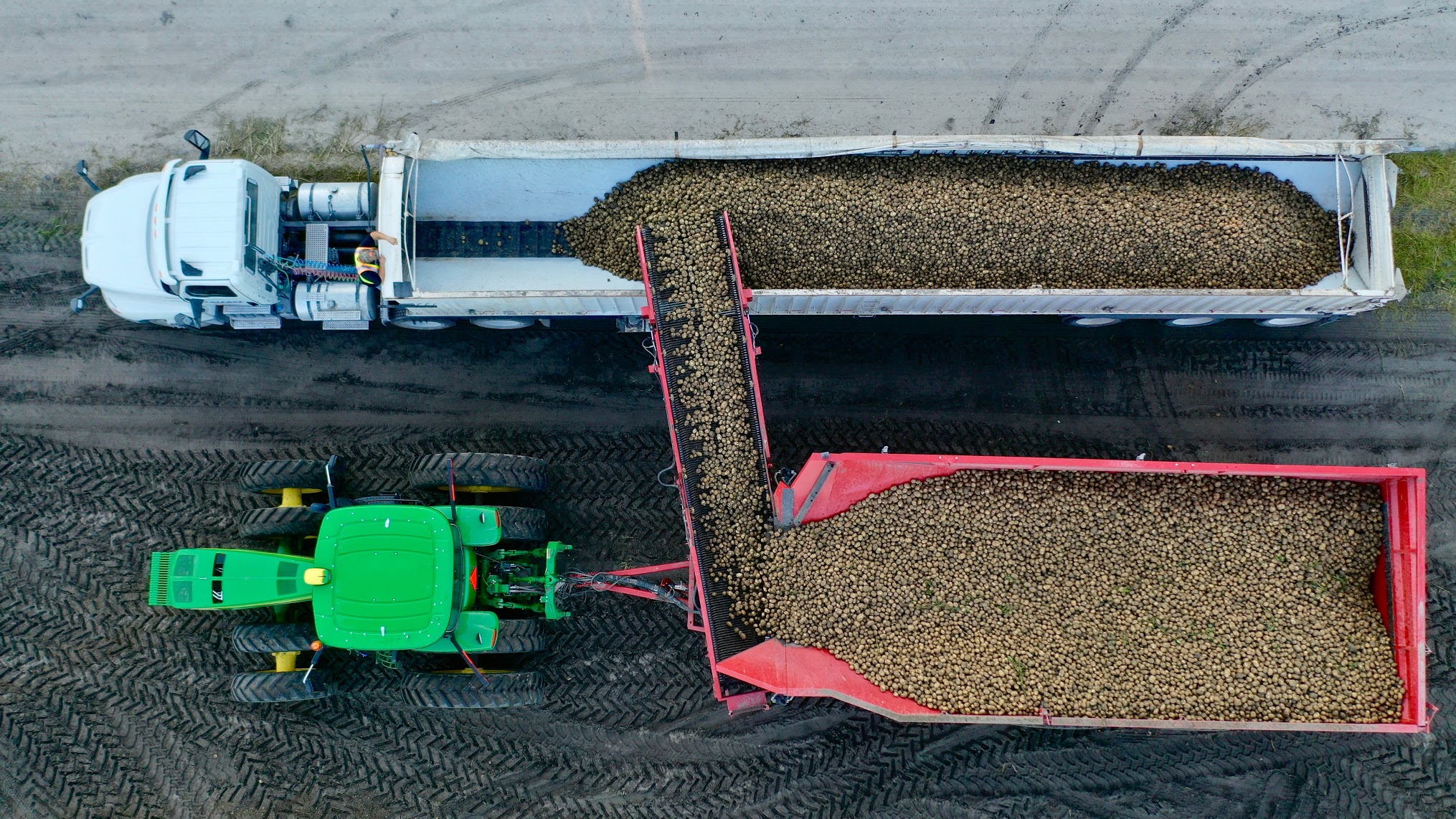PepsiCo now claims that the North American potatoes that it uses to make things like its Lay’s Potato Chips are now 100% sustainably-sourced. This is a big deal considering that Lay’s is the leading chip purveyor in the US, selling roughly $1.74 billion worth of Lay’s in 2017 alone.
“We source a lot of potatoes and its a unique variety that goes into our potato chips. We have a direct relationship with the farmer as a result. We source a number of other commodities and crops and we may work through other suppliers, but we don’t have the same one-to-one visibility with the farmer as we do with our potatoes. We really consider them partners,” PepsiCo VP of global sustainable agriculture and responsible sourcing Christine Daugherty told AFN.
The ubiquitous global brand owns roughly two dozen billion-dollar brands and is one of the biggest food and beverage manufacturers in the world. PepsiCo is not in denial about its stature or the power that it holds over our food supply chain.
“PepsiCo’s size and scale position us to be a leader in next-generation agriculture and to catalyze change in collaboration with other businesses, governments, and nongovernmental organizations (NGOs),” the brand writes on the webpage profiling its Sustainable Farm Program.
Through the SFP, PepsiCo hopes to advance farming practices that optimize crop yields, respect human rights, improve farmers’ livelihoods, and secure supply to build a more sustainable food system. The company is working with farmers to provide on-field agronomy training, resource-efficient use of fertilizers and irrigation, plant protection techniques, and better workers’ rights. This includes:
- Creating ambitious commitments, goals and standards for the company and its supply chain;
- Adopting processes that measure and manage performance against those standards, support farmers and suppliers, and support its business priorities;
- Maintaining robust and clear governance and management to oversee and deliver its commitment; and
- Engaging and collaborating with industry, NGOs, governments and others to find solutions to systemic issues.
More detail about PepsiCo’s SFP can be found in its Scheme Rules, which details the program’s implementation framework, and in its SFP Fundamental Principles.
PepsiCo is gearing up to release its 2018 sustainability report in a few weeks that will have more information about the farming practices it has endorsed, which extend beyond potatoes. Roughly half of the palm oil that it sourced in 2018 was Roundtable on Sustainable Palm Oil certified, up from 32% in 2017, while 58% of the cane sugar it sourced was sustainably sourced as Bonsucro certified, up from 35% in 2017.
But sustainability is becoming such a casually tossed about term that it’s hard to know what it actually means, particularly when the corporation claiming that it’s met some newsworthy metric is setting the goalposts.
“It really means continual improvement. What we look at is how do we get better every day? It’s a journey, a marathon — not a sprint or a single race. We think of sustainable ag as being sensitive to environmental issues like greenhouse gases, water quality, and land stewardship,” Daugherty explains. “There are also social concerns, community, looking at ways to empower women, and the economics. Making sure that when we are engaging with farmers and asking them to change practices we are thinking about it from a business lens and ask what’s in it for them instead of just mandating that they do something.”
The last point is particularly important for the company, which contracts with independent growers to cultivate its proprietary chipping potatoes. Knocking on their doors and asking them to change what they’re doing for the sake of the company getting to slap a sustainability badge on its packaging might not play out well with some farmers. This isn’t to say that farmers are opposed to achieving more sustainable production practices — a recent study from the Soil Health Institute shows that farmers are willingly adopting regenerative agriculture practices.
But for some cash-strapped, time-starved, and labor-weary farmers, the prospect of having to suddenly do things differently or taking risks on new practices without having a clear sense of whether it will also put more cash in their pockets, is a grim one.
“The way we approach it initially is from a business mindset. We can’t go in and just say, ‘Hey, you need to do this because we said so.’ People will resist, say it costs too much, or that it’s a pain. Instead, we sit down and say let’s do a risk assessment and see where there are opportunities that we can work together for increased productivity while helping the local watershed,” Daugherty explains.
Technology has played a key role in optimizing production while reducing the environmental footprint for PepsiCo’s potato growers. From drones to GPS mapping to variable rate technology, the brand has dabbled in a variety of tools on test plots at its potato suppliers farms. PepsiCo pays for the technology or new tool being tested on the experimental plot while the farmer continues farming as usual on the rest of the farm as a control plot.
“The most important thing is that we ask the farmer, who is often a respected member of the community, to open that farm to other members in the area so that those farmers can come in and look at the soil and the technology and engage peer-to-peer, farmer-to-farmer. They really have the ability to look at it and get the assessment from the farmer himself or herself,” she explains.
The endeavor, of course, has been met with some skepticism from PepsiCo’s potato farmers, but Daugherty is willing to work through any opposition primarily by asking the farmer why he or she is leery to begin with. PepsiCo has also tapped local partners in different farming communities to aid its endeavor towards its definition of greater sustainability. In Iowa, for example, it works with Practical Farmers for Iowa to provide training opportunities and to promote best practices in the region.
“Our team and partners want to use science-based technology but we also know that we need to listen to the folks that are out there day in and day out who may have good practices that they think are working so we can see if we can expand that,” she says. “Farming is a little bit of science, a little bit of art, and a little bit of luck mixed together.”
Check out this video from PepsiCo featuring one of its potato grower farms, Black Gold Farms, discussing sustainability.





